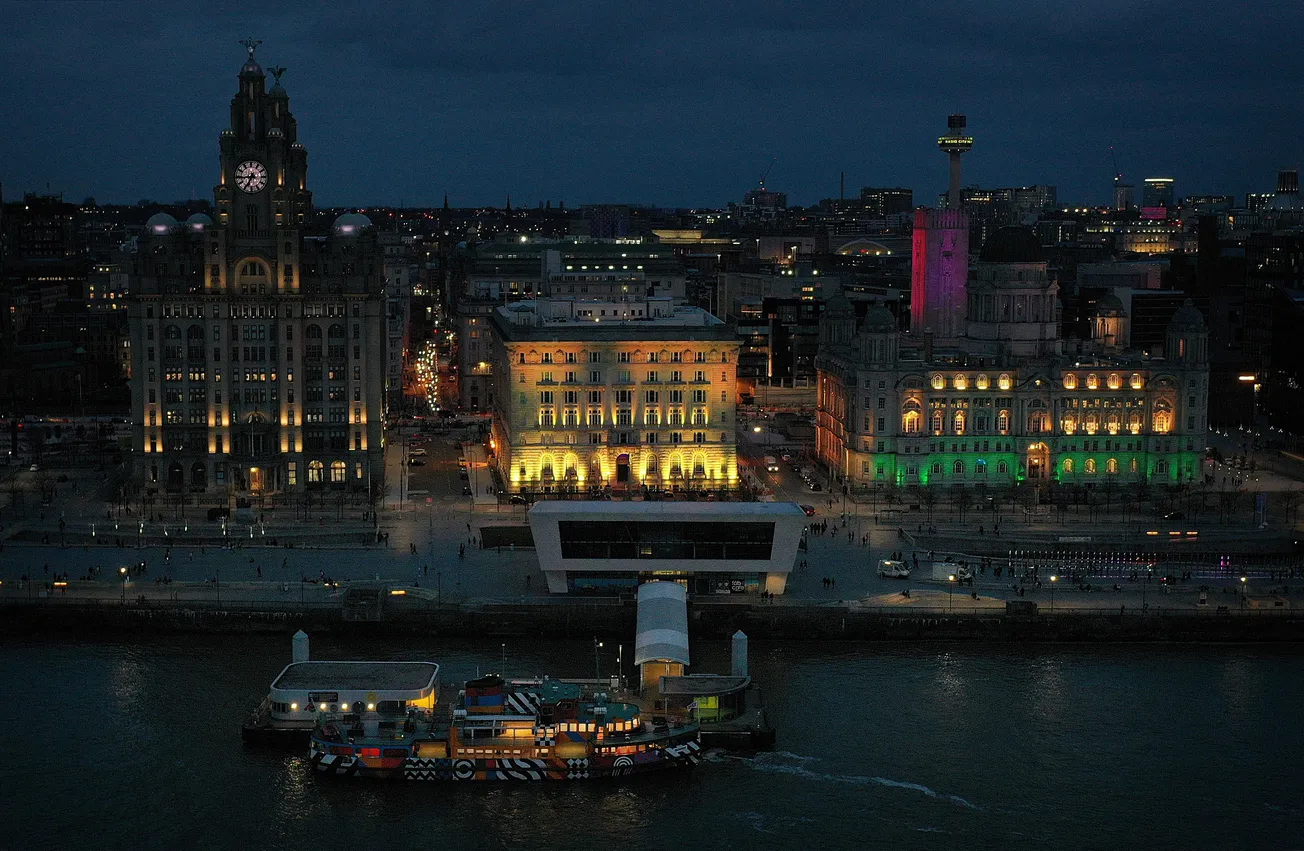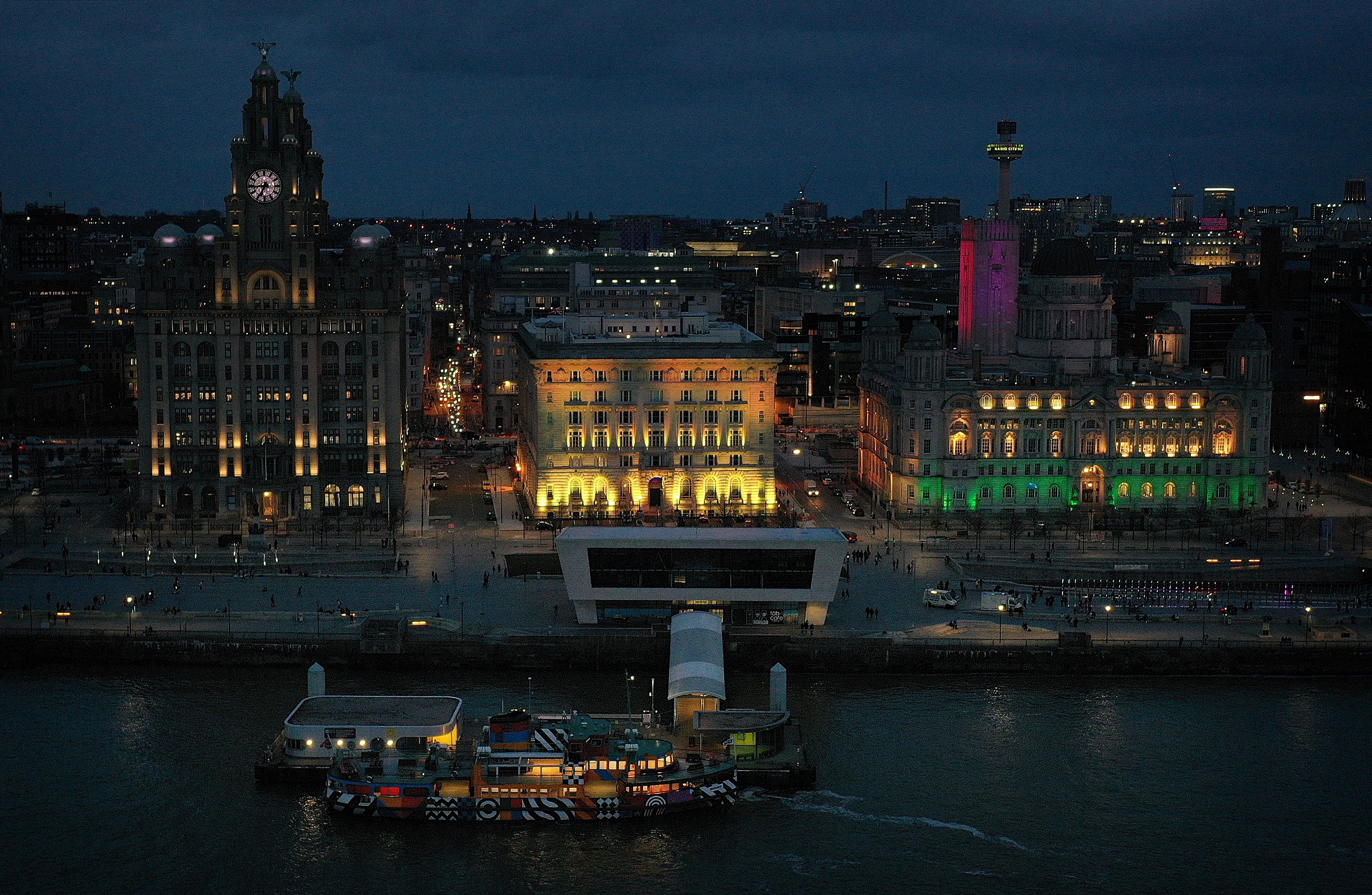'A bunfight': The year that will reshape Liverpool politics - again

In the second part of our special report into the city council, we look at staffing problems in the Cunard building and why the mayor is a 'lame duck'
By Joshi Herrmann, Robin Brown and Mollie Simpson
Liverpool City Council has undergone a year of upheaval since the Caller report, the arrival of government commissioners and the election of a new mayor.
In last week’s special report into the governance of this city, we reported on criticisms of the council’s current leaders and heard from the lead commissioner sent in by Whitehall, Mike Cunningham, about his efforts to turn the organisation around. “You know what your follow-up story is, don’t you?” one official said while we were reporting that piece. He didn’t need to explain what he meant, and the follow-up was already in the works.
The kaleidoscope is about to be shaken again. The mayoralty itself will probably be scrapped after a public consultation (instead of the promised referendum). And very soon we will hear the Boundary Commission’s latest proposals for how the political map of the city should be redrawn, with a reduction in the number of councillors and boundary changes that will alter the balance of power in many wards. Then, later in the year, those changes will be finalised and will go through parliament.

It means next year’s elections — in which every Liverpool ward will be contested — could transform the council, not least because the national Labour Party is planning to take a very active role in the selection of candidates. “There is a very strong presumption that a large number of people, including many in the cabinet, will not be appointed to stand,” says one well-connected figure. “There will be a lot of casualties.”
The Liberal Democrat councillor Kris Brown, who represents Woolton and Gateacre and chairs the council’s audit committee, puts it more bluntly. “Some people must be absolutely sh***ing themselves,” he told The Post, before admitting that he is nervous himself about what the proposals will have in store. “The ward I represent will probably get split three or four ways. You've got people competing for completely new areas. That is going to lead to one hell of a bun fight.”
“If we move to a system of about 85 councillors (with 80 single-member wards and a couple of double member wards), it could be a bit more volatile,” says Dr David Jeffery, who lectures in politics at the University of Liverpool and thinks the new system could yield a higher proportion of non-Labour candidates. The changes are supposed to combat the problem of absent councillors and members who ride on the coattails of others, but Jeffery isn’t holding his breath. “The government seems to have an ideological fixation with this, they did it in Birmingham too. I don't think the issues with the council stem from three-member wards.”
The likely demise of the mayoral position, which would bring Liverpool back in line with most major UK cities that have a council leader, rather than a directly elected mayor, probably means Joanne Anderson’s leadership of the city will end next May. “Joanne isn't currently a councillor and I don't think she has any plans to stand as a councillor,” says assistant mayor Sarah Doyle, one of Anderson’s key allies. She accepts that “people are going to be thinking, well, who's going to lead our council in future?” “There's an interregnum period going on, like John Major or Gordon Brown,” says another Labour councillor who is less close to the mayor and calls Anderson a “lame duck”. “Come May next year I fully expect a new leader of the city, who might be a big figure.”
Some fear that in the big shakeup, some of the people who were influential before will be back in leadership positions. Brown mentions councillors like Ann O’Byrne, Barry Kushner, Paul Brant and Nick Small, who were associated with Joe Anderson’s administration. Everton councillor and deputy mayor Jane Corbett, who some say is “running the show” at the moment and has the respect of councillors across the party divides, is not thought to be eyeing up the leadership. “My best guess, and it is just a guess, is that the group will become slightly more mainstream politically, but also slightly less competent, as people with experience and intellect decide they can do more effective work elsewhere,” says a centrist Labour member.

Even the cabinet members we spoke to for this story weren’t sure if they would still be on the council come next summer. “I don't know,” says Sarah Doyle when asked about whether she will stand to be selected after the boundaries are redrawn. “I would only want to become a councillor again if it was within the areas where I've been a councillor.” Harry Doyle, another assistant mayor who is the cabinet member for culture and the visitor economy, isn’t sure either. “I still haven't fully decided whether it will stand again or not,” he told The Post, although he says he currently thinks he will. “I'm 25. I've been in politics now since I was 15. And sometimes I think maybe I just need to let off a bit of steam and have a normal life.”
Deeply frustrated
When people think about the council, they generally think about their local councillors, who are elected to guide the city’s governance on behalf of voters, despite it not being their full-time job. The councillors selected by the mayor to serve on the cabinet have oversight over specific departments and are highly influential in shaping policy. But the vast majority of a council’s work is performed by its professional officers. And while the problems with Liverpool City Council’s political leadership have been very well documented, less attention has been paid to the issues among its thousands of staff.
The Caller report was highly critical of the council’s officers in places, noting sloppy or non-existent decision making processes and repeated failures to secure good value for taxpayers. Mike Cunningham says installing the right staff is one of his top priorities. “There are capacity issues in the council,” he admits, describing how appointing and retaining high quality officers has been difficult, particularly in areas like social services and engineering. “There will be some people who will need to move on who will not want to be part of the new ways of working”.
Finding good staff is hard for many councils at the moment, but Liverpool is finding it particularly difficult to attract good candidates, which means seconding people from professional services companies like KMPG, at a steep cost, in order to fill the gaps and build confidence
“Nobody bloody wants to work for us,” says Brown, “We are a basket case.” His Liberal Democrat colleague Richard Kemp is a bit more optimistic. “We are beginning to create a team of first class officers led by a first class team of executives,” he says. “Until [chief executive] Tony Reeves, we had a ragbag team of officers, some of whom are currently under investigation”.
The Post has been told that Reeves argued for a rapid overhaul of the troubled highways department while the commissioners have pushed for a more gradual approach, starting with senior officers and then working their way down over a few years. Cunningham won’t be drawn on that, but he says the poor culture in some departments has hurt morale. “There have been many very excellent people who've been working and have been deeply frustrated about working pressures and ways of working that left them feeling very uncomfortable or dispirited,” he told us.

When Sarah Doyle took over as cabinet member for planning and regeneration last year, she got all the planning officers and regeneration team in one room for a meeting, giving them all a rare chance to speak to a cabinet member about their concerns. “It's not only about recruiting loads and loads,” she says. “It's about how those officers feel when they are within the organisation. Within our planning department, they had a really, really tough time.”
The turnaround
Doyle says she has managed to achieve a sense of renewal in her area and believes Liverpool is now “producing policy that you can't find anywhere else in the country”. She points to the example of King’s Dock, which went to cabinet last week and represents one of the first times the council has used a “managed design” approach, on a site that was going to be “just straight off disposed to the private market”. The council will remain the owner of the dock and will maintain much more control over what happens to it by having a development manager and master planner draw up proposals before seeking outline planning permission. Only then will parcels of the site be disposed of if the right developers come forward.
“I’m not anti-development,” says Doyle. “We know that we've missed out on a lot of really good, high-quality developments.” She wants Liverpool to gain a reputation for innovative buildings and a “public realm” that welcomes the public in, rather than excluding them. Articulating the mayor’s signature policy of “social value”, Doyle told The Post the council has to consider “If any development is happening in Liverpool, how does it benefit the needs of local residents?”
Brown, who chairs the audit committee, also feels that progress is being made to make the council more accountable. The Caller report was highly critical of the council’s approach to audit scrutiny under Joe Anderson, but Brown says there is now a healthier culture developing. He cites a dry but important example: the risk register, which lists factors that might impact a project, like Brexit or a pandemic. “The risk register hasn't been seen as a document for about a decade, and that's come to my committee a couple of times,” he told The Post. “There has been nothing in the past ten years or so that takes due diligence seriously, that takes risk seriously. In the past year, it has felt to me like we are beginning to scratch the surface to put things in place.”
The commissioners have been pushing this agenda hard, encouraging Brown to review things like the risk register and pushing back when officers request funding for projects “on the back of a scrap of paper” without going through proper process. “We are introducing, with the current leadership of the council, a new approach to decision making, which is much more transparent, has much more due diligence, much more governance and audit around it,” says Cunningham.
In the Cunard building, several clocks are ticking. One of them counts down to next May’s elections. Another awaits the departure of the commissioners, which is likely another two years off, unless the government decides they need to stay longer. But there’s one important variable that no one can count because it’s in the hands of Merseyside Police and the Crown Prosecution Service: the question of whether Joe Anderson or the other people arrested as part of Operation Aloft will be charged with criminal offences. For now, the investigation continues and its outcome hangs over Liverpool like a shadow.
More than anyone else, it hangs over Tony Reeves. The chief executive is widely thought to have been instrumental in prompting the investigation, which began soon after he joined the council and began raising concerns about how it is run. Reeves has been painted as the council’s saving grace — the grown up in the room who has guided Liverpool’s politics away from its worst moments of chaos and dysfunction. But some think he looks increasingly exposed.
“He's very polished and very plausible,” says someone outside the council who has met Reeves several times and always left feeling unimpressed. “I've always thought he was a bit of a bullshitter — I thought he talked a good fight and didn't deliver,” the source says. “Tony's position is difficult,” says someone who has known him for a long time. “When are these prosecutions coming? The longer it goes on, the weaker Tony is”.
Join The Post’s email list to get good-quality local journalism in your inbox every week — with no links to click or ads to ruin your day. Just click below.

Comments
Latest
Fountains, Ffrith and turning the place over
Just what is happening with Peak Cluster’s CO₂ pipeline?
A ‘stitch up’? How Wirral council bungled Big Heritage
Merseyside’s buses are coming back into public hands. Why not trains too?
'A bunfight': The year that will reshape Liverpool politics - again
In the second part of our special report into the city council, we look at staffing problems in the Cunard building and why the mayor is a 'lame duck'